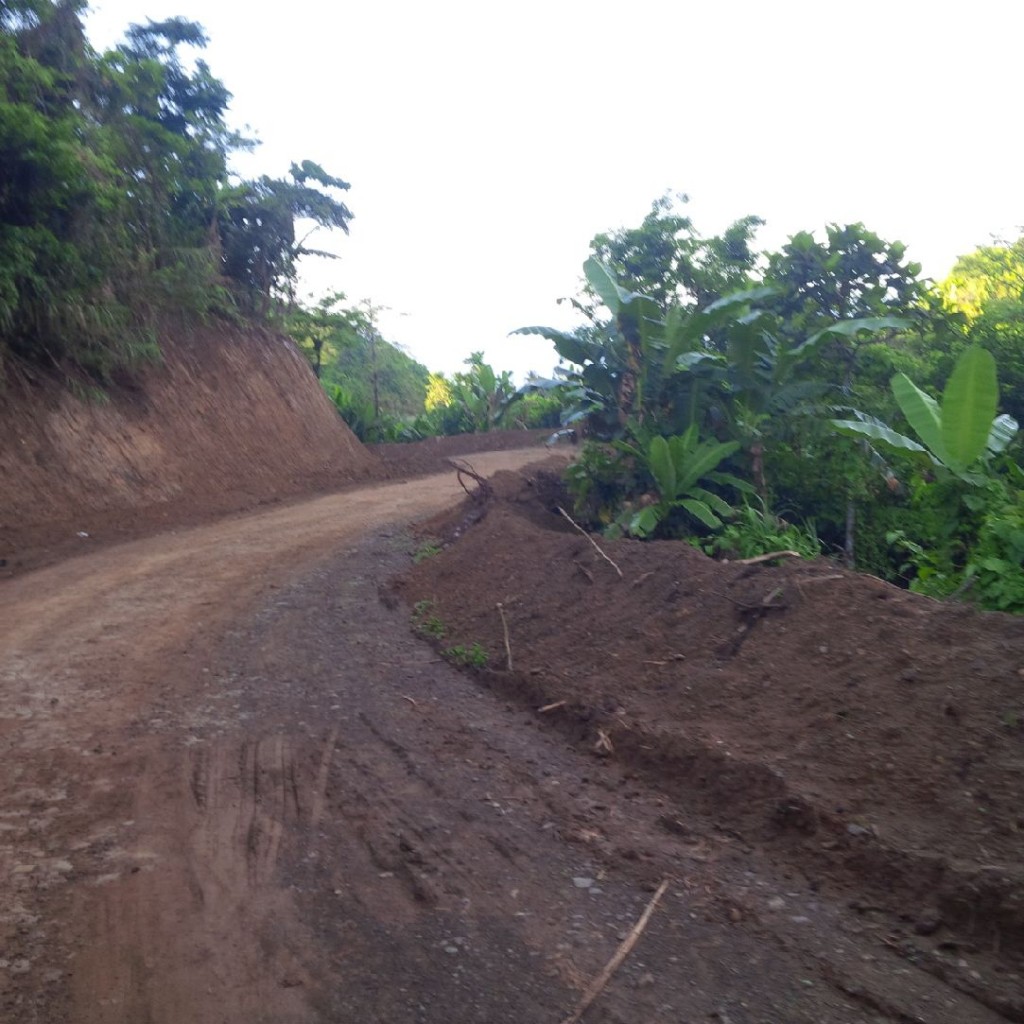PH falls 4 notches in world competitive ranking

Photo taken on April 26,2014, shows an unpaved portion of the Catanduanes circumferential road. In terms of infrastructure, many Philippine roads remain unpaved, transportation is deemed inefficient while the primary airport is operating beyond capacity, according to the 2014 World Competitiveness Yearbook. PHOTO BY RICK ALBERTO
MANILA, Philippines—The Philippines suffered a setback in the competitiveness rankings, dropping four notches to rank 42nd in the 2014 World Competitiveness Yearbook (WCY), despite the overall optimism in the country’s strong economic growth and perceived improvements in the business environment and governance.
The country’s competitiveness was pulled down by five critical challenges—infrastructure, corruption, unemployment and underemployment, undeveloped financial system and natural disasters, said the WCY released Wednesday by the Asian Institute of Management Policy Center.
The WCY is an annual country and regional competitiveness report produced by the World Competitiveness Center (WCC) of the International Institute for Management Development (IMD), one of the world’s premier business and management schools based in Lausanne, Switzerland. The AIM Policy Center is the Philippine partner institute of the IMD.
In terms of infrastructure, many Philippine roads remain unpaved, transportation is deemed inefficient while the primary airport is operating beyond capacity, the WCY said.
As for corruption, the government still “has a long way to go” despite the improvements being made in governance, it said.
Natural calamities
The WCY also pointed out that the Philippines’ unemployment and underemployment rates are one of the highest in the region, while access to finance is one of the greatest challenges facing small and medium firms.
Finally, typhoons, rains and earthquakes caused major damage last year, the WCY said.
For this year, the WCC ranked 60 countries worldwide using four broad factors in measuring competitiveness—economic performance, government efficiency, business efficiency and infrastructure.
The Swiss-based research center uses economic data from various international and national sources, as well as an opinion survey in generating more than 300 criteria to assess and rank the competitiveness of nations.
The United States topped the 2014 WCY, followed by Switzerland, Singapore, Hong Kong and Sweden. Completing the top 10 were Germany, which ranked 6th, followed by Canada, the UAE, Denmark and Norway.
Overall, the 2014 WCY saw most other big emerging markets falling in the competitiveness rankings as well. Apart from the Philippines, China also dropped two notches (21st to 23rd), India (40th to 44th), and Thailand (27th to 29th).
In Southeast Asia, Malaysia and Indonesia both made gains in the overall rankings, Malaysia landing in 12th from 15th last year and Indonesia making it to 37th from the previous 39th.
Among the 13 countries from the Asia-Pacific that were included in the study, the Philippines dropped one notch to the 12th place this year from 11th last year. Singapore ranked first in Asia -Pacific, followed by Hong Kong, Malaysia and Taiwan.
Modest export performance
According to the AIM Policy Center, the Philippines’ economic performance factor dropped six places from 31st to 37th.
Although GDP growth was 7.2 percent—the second-highest among WCY countries—the Philippines was dragged down by its recent modest export performance, while inflation was deemed relatively higher than many of the other countries in the rankings.
Government efficiency ranking also dropped from 31st last year to 40th this year.
‘Business efficiency’
“A series of high-profile corruption cases likely contributed to the deterioration in the perception of corruption, and both the Bureau of Internal Revenue and Bureau of Customs failed to meet their collection targets. Nevertheless, the 32 percent decline in the budget deficit and the 12 percent increase in national government revenue made up for some of the losses from the perceptions-based criteria. The deterioration in the country’s rank this year may have been sharper had it not been for these macro-fiscal policy gains,” the AIM Policy Center said in a statement.
The “business efficiency” factor ranking also went down to 27th from 19th, as the stock market cooled down significantly last year after a hot streak in 2012. This was not uncommon among many emerging market economies, due in part to the monetary policy of major industrial countries, it said.
Infrastructure, consistently the lowest-ranked factor for the Philippines, fell to 59th from 57th, as growing attention on poor roads and transportation facilities—notably the Ninoy Aquino International Airport, which has been consistently ranked among the world’s poorest—was compounded by the slow implementation of public/private partnerships (PPP).
A looming power crisis, along with a controversial price hike in late 2013, also likely contributed to this decline, the AIM Policy Center further noted.
